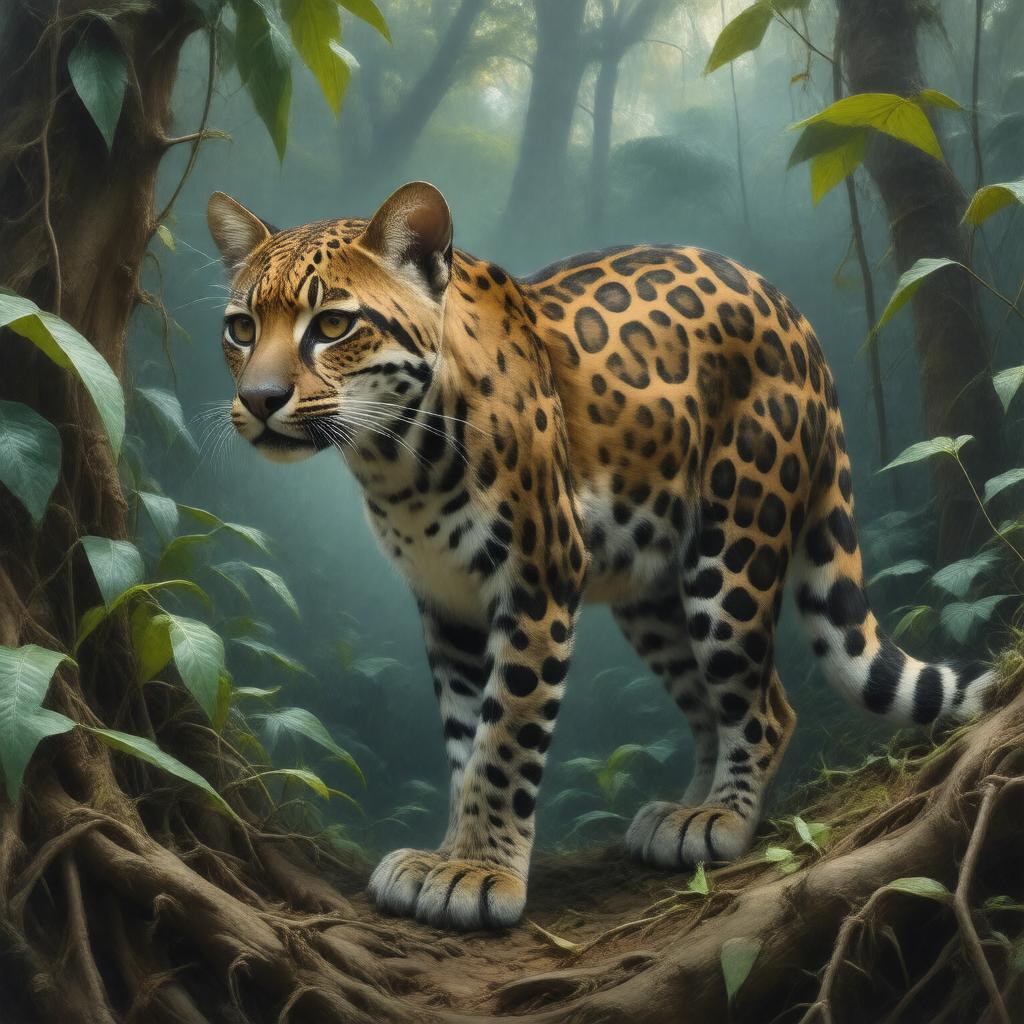Prompt
"Generate an image of a solitary Ocelot (Leopardus pardalis) in its natural habitat, a tropical rainforest, with a focus on its distinctive spotted fur and agile body, highlighting its nocturnal and carnivorous nature, in a realistic and detailed style."

